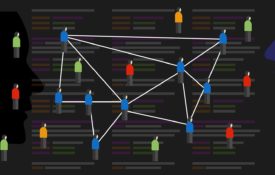-

Treat Implicit Bias as a Public Health Problem, New Report Recommends
To turn the tide on the biases that perpetuate social injustice, the latest issue of PSPI recommends that governments and institutions treat implicit bias as a public-health problem.
-

New Content From Current Directions in Psychological Science
A sample of articles on brain and learning, handedness in primates, cognitive modeling and large-scale digital data, language, blame, credibility in psychological science, musical synchrony, innovations in clinical science and assessment.
-

New Research in Psychological Science
A sample of research on how people view themselves and integrate others’ feedback, similarity reasoning in children, advice from top performers, science learning, working memory distortions, memory updating, motor coordination, and perceptions of authenticity.
-
The New Science of Forgetting
A baby zebrafish is just half the size of a pea. A recent look inside its transparent brain, however, offers clues to the far bigger mystery of how we remember—and how we forget. In an experiment that yielded insights into memory and the brain, a team of researchers at the University of Southern California taught the tiny creature to associate a bright light with a flash of heat, a temperature change the fish responded to by trying to swim away. Using a custom-designed microscope, the team then captured images of the animals’ brains in the moments before and after they learned to associate the light and the heat.
-
Why Are Masks Such a Big Deal for So Many? Psychologists Have Thoughts
If you've been on a flight or taken public transit recently, you might've a lot fewer masks. A Florida judge struck down the federal travel mask mandate last Monday, and while companies aren't being forced to drop their mandates, many have. Meanwhile, the Omicron subvariant BA.2 now accounts for 75 percent of new COVID cases in the U.S. To mask or not to mask continues to be a divisive question. We get into the psychology of why. Dr. Anthony Fauci, Gretchen Chapman, and Steven Taylor join us for the conversation. ...
-
The Bias Hunter
In February 2021, cognitive psychologist Itiel Dror set off a firestorm in the forensics community. In a paper, he suggested forensic pathologists were more likely to pronounce a child’s death a murder versus an accident if the victim was Black and brought to the hospital by the mother’s boyfriend than if they were white and brought in by the grandmother. It was the latest of Dror’s many experiments suggesting forensic scientists are subconsciously influenced by cognitive biases—biases that can put innocent people in jail.

